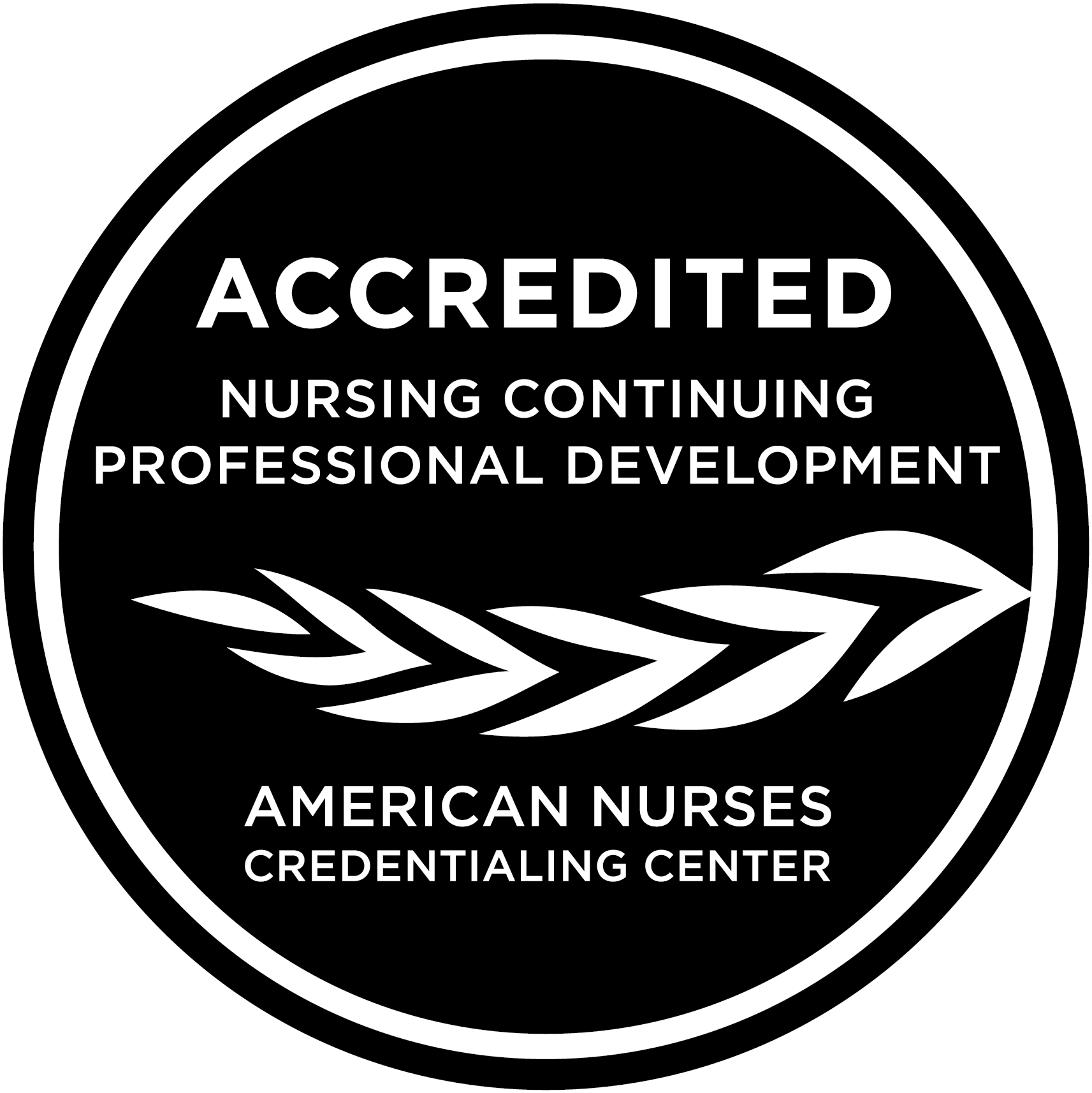 09:00 am to
09:00 am to
Cheryl Fisher
EdD, MSN, RN

Charlotte Seckman
PhD, RN, NI-BC, CNE, FAAN
 09:30 am to
09:30 am to
Cheryl Fisher
EdD, MSN, RN

Cory Stephens
DNP, MSN, RN, CNE, NI-BC, CPHIMS, FHIMSS

Yolanda Ogbolu
PhD, NNP, FNAP, FAAN
 09:45 am to
09:45 am to
Kathleen McGrow
DNP, RN, PMP, FHIMSS, FAAN
Empowering Nurses with Artificial Intelligence (AI) explores the transformative impact of AI on nursing practice. It covers various aspects of AI, including its definition, types, and applications in healthcare. The presentation emphasizes the role of nurses in AI development and design, highlighting the need for their insights and inclusion in the process. It discusses the benefits of AI in nursing, such as improving patient care, enhancing decision-making, and automating low-value tasks. Additionally, it addresses the challenges and ethical considerations of implementing AI in healthcare. The presentation also explores emerging technologies and the future of AI in nursing, the strategic roadmap for scaling AI technologies and provides a comprehensive overview of how AI can empower nurses and improve healthcare outcomes.
 11:10 am to
11:10 am to
Lauren Rewers
BS
IT and clinical leaders widely agree on the potential of artificial intelligence (AI) to transform nursing care delivery, from reducing documentation time to notifying clinicians of patient deterioration. What has yet to be determined is the degree of impact on nursing care and workforce outcomes. Without these measurable outcomes, nurse executives may struggle to articulate the impact that AI will have on their strategic goals and make the case for investment. This session will share concrete outcomes from four active AI pilots within Nursing Catalyst's innovation collaborative — and early learnings from those health systems about how nursing and information technology (IT) executives should approach AI strategy to maximize value.

Marc Perkins-Carrillo
MSN, RN, NI-BC, NE-BC, HACP
This presentation explores the transformative potential of AI and emerging technologies, including predictive analytics, natural language processing, and robotic assistance, emphasizing their roles in optimizing nursing workflows without increasing patient ratios. By automating routine tasks and providing data-driven insights, these tools are designed to empower nurses to deliver higher quality, personalized care. Crucially, the successful and ethical implementation of these technologies hinges on the active involvement of nurses in the design and development processes, ensuring solutions align with clinical needs and prioritizing patient well-being. Furthermore, AI facilitates advanced research methodologies, accelerating evidence-based practice and improving patient outcomes. This session will underscore that these innovations are intended to enhance the quality of nursing care, fostering efficiency and equity within a dynamic health care landscape.
 12:10 pm to
12:10 pm toParticipants must view at least six posters to receive a CE credit, 1 CE maximum.
 01:10 pm to
01:10 pm to
Michael Hasselberg
PhD, RN, PMHNP-BC
Generative AI is transforming nursing by reducing administrative tasks, allowing nurses to focus more on patient care. While AI cannot replace the human touch, it can enhance the efficiency of nursing practice. This presentation will explore how AI can support nurses to improve health outcomes and reduce burnout.

Katie Barr
MSN, RN
AI and IT governance have emerged as critical areas of focus for organizations striving to harness the benefits of AI while maintaining robust governance structures. IT governance encompasses leadership, organizational structures, and processes that ensure the organization’s IT sustains and extends its strategies and objectives. A well-defined IT governance framework enables organizations to control the implementation of IT, ensuring that all facets of technology are aligned with organizational strategic priorities. The integration of FAIR AI into the overall IT governance process is not just about enhancing current capabilities but also about preparing the organization for future challenges and opportunities.
 02:15 pm to
02:15 pm to
Alexandra Brinkert
MPH, RN

Harrison Jackson
BSN, RN

Sarah Slonaker
MSN, RN, MEDSURG-BC

Barbara Kupferschmid
PhD, RN

Rhonda Schoville
PhD, RN

Kayla Van Boxtel
BS, BSN, RN
Co-authors: Madeleine Whalen, MSN, MPH, RN, CEN, NPD-BC; Christy Richter, BS, BSN, RN, RNC-NIC; Kymberlee Cox, DNP, RN, NPD-BC, CNE


Ruidan Hu
RN
Co-authors: Shushu Duan, RN; Xiaolin Zhu, RN; and Xueting Huang, RN

Heather Carter-Templeton
PhD, RN, FAAN
Co-authors: Marilyn H. Oermann, PhD, RN, ANEF, FAAN; Jacqueline K. Owens, PhD, RN, CNE; Hannah E. Bailey, MS; Gabriel M. Peterson, PhD; Joy Mbadiwe, BSN

Carolyn Harmon
PhD, DNP, RN, NI-BC
Co-authors: Leyla Pordeli, DNP, MBA, MSN, NIBC, RN, Tonya Judson, DNP, RN, NI-BC, CNE, Nancy M Husson, DNP, RN, CHSE, Katherine Taylor Pearson, DNP, NI-BC, CLSSBB, CPHIMS, CPBI, CKM, and Heather Carter-Templeton, PhD, RN, NI-BC, FAAN

Irina Koyfman
DNP, NP-C, RN

Nina Stevenson
RN
 03:20 pm to
03:20 pm to
Gail Keenan
PhD, RN, FAAN
In this session, you will explore how AI-driven technology can transform nursing documentation and communication at the point of care. Attendees will gain insights from the experiences encountered in the development of Moxie, an innovative solution leveraging AI, LLMs, and wearable technology to support nurses and reduce their documentation burden.

April Saathoff
DNP, RN, NI-BC, CPHIMS
This presentation will provide a comprehensive overview of The Johns Hopkins’ Virtual Nursing Program, detailing its strategy, implementation, and future direction. The program spans seven units across four hospitals and was rapidly deployed over a four-month timeline. Key discussion areas include understanding how the current state of health care supports virtual nursing, the anticipated benefits of virtual nursing, the roles and responsibilities of the virtual nurse, project goals, the technology selection process, metrics and monitoring, project governance, key project design insights, and how the program plays a part in the larger vision of virtual health.
 04:25 pm to
04:25 pm to
Connie Delaney
PhD, RN, FAAN, FACMI, FNAP

Florence Doo
MD, MA

Sheri Lewis
MPH

Kathleen McGrow
DNP, RN, PMP, FHIMSS, FAAN
Moderators:

Ernest Opoku-Agyemang
PhD, MA, RN

Cory Stephens
DNP, MSN, RN, CNE, NI-BC, CPHIMS, FHIMSS
The closing panel aims to address critical topics such as ethical considerations in AI and health care, cybersecurity challenges and solutions, and practical applications and governance of AI in health systems. Your participation will greatly enrich the discussion and provide diverse perspectives on these important issues.
 05:35 pm to
05:35 pm to
Cheryl Fisher
EdD, MSN, RN

Cory Stephens
DNP, MSN, RN, CNE, NI-BC, CPHIMS, FHIMSS

Nurses may receive 7.5 contact hours for attending this entire activity and completing the evaluation. After completing the evaluation, attendees will be able to print the certificate.
The University of Maryland School of Nursing is accredited as a provider of nursing continuing professional development by the American Nurses Credentialing Center’s Commission on Accreditation.